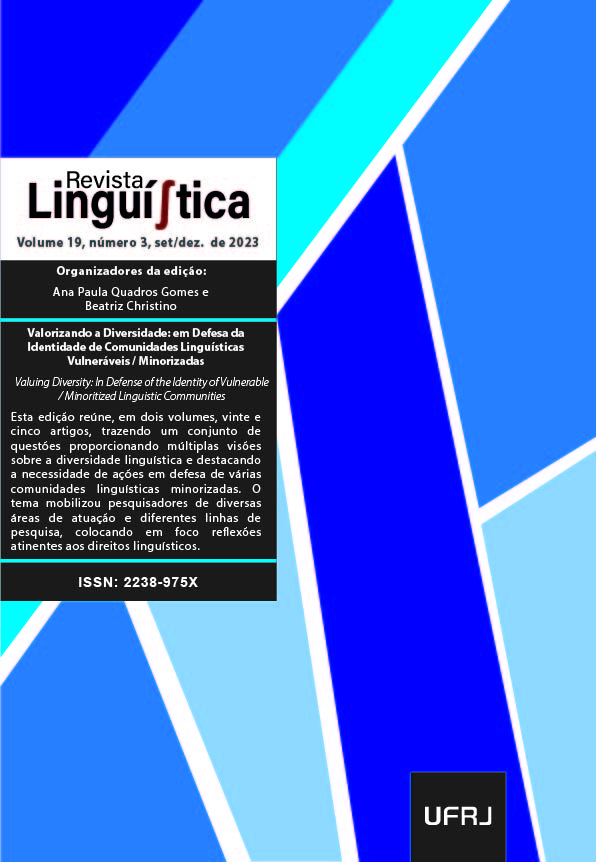Authorship and cultural identity in indigenous textual production
DOI:
https://doi.org/10.31513/linguistica.2023.v19n3a59789Keywords:
Identidade cultural, Autoria indígena, Português como Segunda LínguaAbstract
Since the colonization of our country until the70s, schools had the function of civilizing and acculturating indigenous peoples. Through constant demands of the ethnicities, it becomes a means of cultural preservation, interaction with non-indigenous people and fighting for rights. Within this perspective, a study was conduced out at the Kamadu school, of the juruna ethnic, in Mato Grosso, which can be considered action research, as it was proposed to observe whether the corrections made by an external teacher-researcher, in Portuguese texts by indigenous people, whether or not they would result in “loss of cultural identity” or “loss of authorship”. To this end, a Learning Workshop was held in which Constitutional Amendment Proposal 215 was debated and participants produced an open letter. During the Workshop, the Didactic Sequence and Textual Refactoring methods were used. Our results revealed that effective teaching/learning approaches are capable of preserving cultural identity. With regard to textual production, signs of authorship and reading were evident, as well as a mark of cultural identity, in order to overcome linguistic prejudices.
Downloads
Published
Issue
Section
License
Copyright (c) 2024 Revista Linguí∫tica

This work is licensed under a Creative Commons Attribution-NonCommercial 4.0 International License.
Authors who publish in the Revista Linguí∫tica agree with the following terms:
The authors maintain their rights, ceding to the journal the right to first publication of the article, simultaneously submitted to a Creative Commons license permitting the sharing with third-parties of published content as long as it mentions the author and its first publication in the Revista Linguí∫tica.
Authors may enter into additional agreements for the non-exclusive distribution of their published work (for example, posting in online institutional or non-profit repositories, or book chapters) so long as they acknowledge its initial publication in the Revista Linguí∫tica.

The journal Revista Linguí∫tica is published by the Post-Graduate program in Linguistics of UFRJ and employs a Creative Commons - Attribution-NonCommercial 4.0 International (CC-BY-NC).









